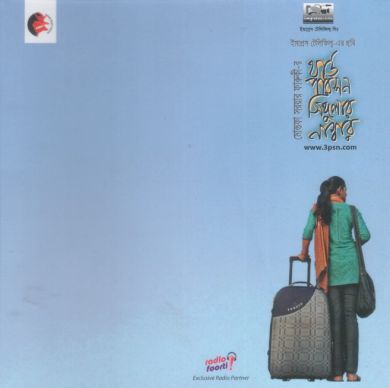
THIRD PERSON SINGULAR NUMBER
Bangladesh, 2009, 124 minutes, Colour.
Nusrad Imrose Tisha.
Directed by Mostofa Sarwar Farooki.
Third Person Singular Number is a film from a director who has a strong reputation in Bangladesh for commercials and for working in television. It is his first feature film.
The film is new for the Bangladesh industry insofar as it looks at a rather affluent middle class. It is made for audiences in the cities rather than for people in the countryside who may be at a loss at looking at this kind of urban story with its sophistication and its wealth.
The film breaks with some of the television Muslim culture. At the opening, the woman in the centre of the film is wandering the streets in the middle of the night – and encounters the ghost of a woman who was murdered and raped. This sets the tone – but, audiences will have to concentrate because it is a mixture of realism and fantasy.
The woman has left her family home, her husband is in prison for manslaughter. She is looking for somewhere to stay. She has broken with Muslim custom by living with her boyfriend rather than going through a marriage ceremony.
She asks the help of various people, some of them willing, some of them not – especially a cantankerous old woman who wants her gone from the house. She receives many propositions from wealthy old men. She moves through, rather blithely, and finally contacts an old school friend who is a recording star. He helps her build a house and she seems settled, also getting work in an agency. However, she is not satisfied. She is haunted by memories of the past, of her clash with her mother. She also resists, at first, going to visit her husband in prison.
There is a device throughout the film of various aspects of her past embodied and coming to discuss her situation with her. This indicates that she is the third person, singular – but there are other persons who appear and converse with her. Audiences have to concentrate to work out what these fantasy sequences are and how they contrast with the realism.
Finally, she is persuaded to go to visit her husband and receive him when he returns from prison. However, she is in love with the recording artist. They finally work out some kind of living relationship, as friends.
The film has humour, is also very serious in its look at Bangladeshi society, religious and moral traditions, the globalisation of the contemporary world and how, even in the Muslim tradition, secularism is finding a place.